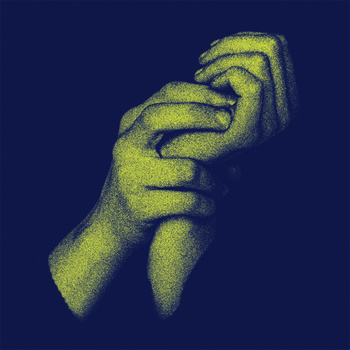
Jessica Jalbert
Brother Loyola
(Old Ugly; 2011)
By Matt Main | 11 November 2011
At the start of Brother Loyola Jessica Jalbert announces, “I’m going to sing you to sleep,” and then spends the next eleven songs doing exactly the opposite. She composes vividly lit photographs of songs, capturing moments and character and feelings throughout with what initially appears to be only a small range of colour, yet gradually reveals itself to be a very deliberately nuanced palette. In the same vein as other female songwriters like Mirah, Jalbert toys with creations whose basic elements are to be found in a clear, hypnotic voice and a folk-pop core. Nevertheless, at no point does this formula ever stray into the soporific: she is delicate, but not fragile; intimate, but not quite naked. While she certainly does possess aesthetic similarities to artists like Mirah, very little abides on this album which does not feel purposefully placed and hand-crafted. The pictures which she frames are compositions specific to time and place, and are important enough to her to be documented in a way that demands toil and hard labour to perfect—evidently not something Jessica Jalbert shies away from.
They are such fantastically detailed pictures, too. Take “O Evening Colors,” with its strikingly evocative involvement with nature, and the stirrings these encounters produce: “And dear North Saskatchewan river, pray tell / You’re so goddamn gorgeous, but I feel like hell.” The emotional strain of memory and association hangs over the song like a dark cloud, the brooding drums and lingering guitar distortion emanating the same physical discomfort. Elsewhere, the listener is invited to view scenes from the eyes of the protagonist in “Lack of a Lake,” where she adopts various identities from the animal kingdom. We are led to “smell boughs of spruce,” hear the “rustling of a bush,” and “feel the rays of sun” on our backs. Jessica Jalbert’s music consciously awakens a variety of senses, in a way one would usually associate with ambient music, which also evokes specific scenes, settings, or characters. Here, she does so through the gift of poetry, subtle shifts of perspective providing the listener with ample points of entry, so that they too may step into and understand the subjects of her shots.
Thematically, Jalbert often grapples with death. She deploys motifs like “tombstones,” “obituaries,” “Potter’s Field,” and the concept of decay throughout, allowing one’s eyes to rove freely across the frame, addressing one idea before progressing and picking up on the next. Her consistently mournful projection acts as a reflection on the omnipresence of death, an acknowledgment that sometimes nothing more can be achieved than simply enduring a period of grief: a stark truth, but a very real one, and one that is often painful to accept. In “Necromancy,” she permits layers of strings (note: a use of strings which feels neither forced nor obtrusive) to swallow gradually her ode to the lost, until eventually the cleansing is complete. “Aubrey de Grey” sees weighted piano chords herald a funereal march towards a final, repeated regret: “All is subject to decay, Aubrey de Grey.” This repose contains a moment where the clarity of resignation culminates in one last cymbal crash, and breaks into poignant silence. For Jalbert, death can only be accepted, meditated upon, and then commemorated in art and ceremony.
Commemoration frequently (though not always) marks the point at which the impact of death is negated. Brother Loyola is Jessica Jalbert reaching beyond sonic limitations and composing fascinating pictures of death and mourning, amongst other subjects—carefully assembling a collage of objects and feelings personal and subject to her creative touch. The style of music she crafts goes too deep to be found on any Starbucks playlist, the photographs she presents undoubtedly beautiful but not stereotypical enough for me to want to reblog on the Tumblr page that I don’t even have. And that’s the best kind of true, vivid beauty: the kind cliché can’t erode.





